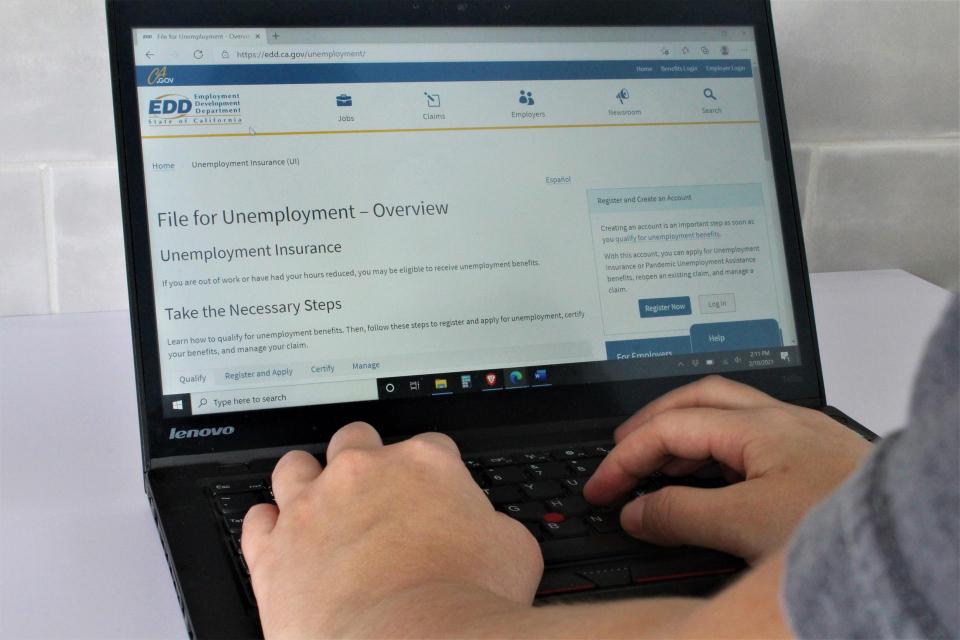Tips for Contacting Your Legislators if You are Having Problems at EDD
For part-time faculty facing hurdles in securing unemployment benefits
This is meant to be a helpful guide to assist part-time community college faculty in how to talk with your legislators and their staff members about your personal stories regarding the unemployment insurance system administered through the California Employment Development Department.
In short, you are your best advocate in helping your legislator understand what’s happening “on the ground.” Be aware legislators’ offices have connections to EDD and can use them in order to further your complaints and concerns.
Legislators usually work in their district offices on Fridays, and while you may not talk to the assemblymember or senator directly, their staff are friendly and want to help you with your problem. Remember, these are elected officials and they work for you. Do not feel nervous or intimidated.
To start
- Find who represents you in the California Legislature here.
- Call your legislator’s district offices and make an appointment to discuss the issues you’re having with EDD. It’s best to make an appointment so that you are directed to the appropriate person who can best hear your concern and help you out.
“Hi, my name is [insert name] and I’m a part-time instructor at [insert college or workplace name here]. I’ve not been able to collect unemployment benefits [or I was denied unemployment benefits, I find the process unfair and line of questioning by EDD representatives misleading, etc.] and would like to make an appointment with Assemblymember/Senator [insert name] or one of their staff members to discuss my case.”
At the appointment
- Start with your personal story about the struggles you may have with EDD. Personal stories make the problem legitimate and make you an actual person who is struggling with obtaining unemployment benefits.
- Educate your legislator and their staff members about what makes part-time community college faculty different from full-time college faculty or K-12 teachers in terms of collecting unemployment benefits. For example, some of the questions EDD representatives ask are misleading when they ask about summer or winter breaks or if your name is on the class schedule. EDD representatives do not understand that you still don’t have reasonable assurances of continued employment even if you answer “yes” to either of these questions because each assignment a part-time community college faculty receives is contingent upon funding, enrollment, and/or program changes. Nor does EDD understand that summer and winter breaks are not truly “breaks,” but rather just another academic term like fall or spring. Explain that these “breaks” are really academic terms in which community colleges normally offer services and classes but you were not offered an assignment for these terms. Part-time faculty are eligible for unemployment during the time they do not have a job, regardless of whether classes classes are held or not, and whether the college is open or not.
- Let your legislator know that EDD does not understand the fundamental differences of part-time community college faculty from full-time, contract community college faculty or full-time K-12 teachers and that EDD’s line of questioning needs to change to factor in these differences.
- Share that there is a California court decision, Cervisi, which found that part-time community college faculty do not have reasonable assurances of continued employment from semester to semester, because their assignments are contingent upon funding, enrollment, and subject to program changes, and therefore they are eligible for unemployment insurance benefits. Now the Cervisi v. Unemployment Insurance Appeals Board decision is also part of the California Education Code.
California Education Code, Section 87482.3
(d)
In all cases, part-time faculty assignments shall be temporary
in nature, contingent on enrollment and funding, and
subject to program changes, and no part-time faculty member shall
have reasonable assurance of continued
employment at any point, irrespective of the
status, length of service, or reemployment preference of that
part-time, temporary faculty member.
It’s important to repeat and reiterate the italicized language of the Education Code above when you apply for unemployment insurance, on your form and to EDD representatives when you have an interview for benefits — but’s important to make your legislator aware of it as well.
5. You can also use this union resource about the interview process to help your legislator understand some of the questions EDD asks you, and how they are misleading and meant to deny you benefits that you are entitled to.
Ultimately, the goal is not only to secure your unemployment
benefits, but to let the legislator know that EDD is doing
everything in its power to not pay you what is
rightfully yours. It’s okay to be indignant about this point.
Emphasize that part-time faculty are the lifeblood of higher
educational institutions and you have every right to collect
unemployment benefits when you are not teaching. It’s time to let
legislators know the deceitful way EDD operates when it comes to
part-time community college faculty.
— Prepared by Emily Haraldson, Glendale College Guild, AFT Local 2276, and the members of the Higher Education Committee

